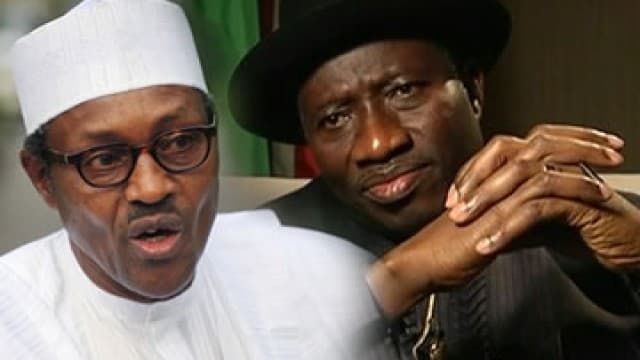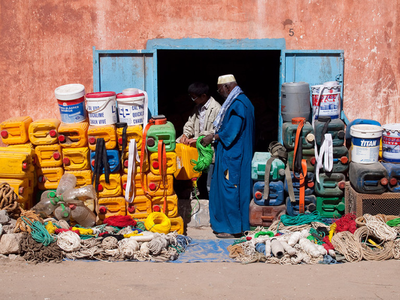Both the Peoples Democratic Party and the All Progressives Congress appear to have settled on obfuscation as the name of the game in this election season. Both parties, and the constellation of smaller parties, seem bent on discouraging any deep conversation around the state of Nigeria.
Even more sad, I think, is that too many Nigerians – including ostensibly educated ones – seem willing to let the parties have it on their terms. I won’t be surprised if there are one or two of the so-called smaller parties, raising profound questions about the brokenness of Nigeria and offering some considered thoughts about ways out of the quagmire. Yet, any such parties would be condemned to labour in obscurity, ignored by the media. The Nigerian media after all reflect the larger Nigerian society. And the consensus in that perplexing space called Nigeria is that our choice is limited to the PDP and APC.
Yet, neither of those two parties has differentiated itself in the quality of its ideas, in the vision of its most prominent figures, or – come to think of it – in the example of their members in public service. If we must adopt the binary position that we have only two viable parties, and that they represent different ideas and tempers, then there’s no better time for Nigerians to insist on serious, clarifying debates between the two parties. Goodluck Jonathan and Muhammadu Buhari, the two parties’ respective presidential candidates, should be front and centre in that debate.
Rather than embrace the challenge of such debates, the candidates as well as their cohorts are content to trade toxic innuendoes and insults, to hurl invectives across the partisan divide and even to portray the other as the embodiment of diabolism. This strategy has created an atmosphere of heat but little or no light, a lot of noise but no sense. Both parties are basking in this noise-mediated, issue-avoiding strategy. And the rest of us are letting them get away with it, as if we are unaware that Nigeria is in an endangered position, a country raped to the point of death by vile men (and a few women) who have now pitched their tents in the two “major” parties.
In the absence of any vigorous contestation between the two candidates, the political space has been ceded, sadly, to the verbal gymnastics of the likes of Reverend Ejike Mbaka, a double-speaking cleric who, in one breath, assured Mrs. Patience Jonathan that her husband was an extraordinary leader, only to use another to traduce the same man. And what’s remarkable about this superstar priest is that he presumed on both occasions to speak under the inspiration of the Holy Spirit! What manner of spirit is it that gives conflicting messages several months apart? Or was this all, perhaps, one demagogue’s conflicted spirits betraying the man?
Mbaka’s jeremiad against Mr. Jonathan gave comfort to those who can’t wait to send the president back to Otuoke. But the reverend would have been more convincing if, only a few months ago, he had not canonized the president. His denunciation of Jonathan (the substance of which was unassailable) would have carried more weight had he not voiced opposite sentiments a mere few months ago, providing his critics with the ammunition to call his motives – if not his integrity – to question.
As long as Goodluck and Muhammadu remain reluctant to face the issues and to answer tough questions, men like former Presidents Ibrahim Babangida and Olusegun Obasanjo will continue to steal the political show. Though disasters during their own reigns, both former rulers now presume to be on pedestals, the better to lecture Nigerians on the man or party to elect or reject.
Babangida and Obasanjo’s nostrums serve to divert attention from what’s needed: A serious colloquy between the PDP and the APC as well as a series of debates between the two parties’ presidential candidates.
For a start, Jonathan and Buhari (as well as other presidential candidates) should commit to several televised, no-holds barred debates. At each session, each candidate should make an opening statement, addressing three broad issues. One, why he thinks Nigeria should remain one country. Two, each candidate should offer a description of the shape of the Nigeria of his dream. Three, he should specify how he plans to achieve that envisioned Nigeria.
Continuity has become President Jonathan’s mantra. But he ought to be asked, continuity with what? As a candidate in the 2011 presidential elections, he went on a promise-making jamboree. He would, he pledged, solve Nigeria’s perennial electric power woes, restore security, stem corruption, revamp the economy, create jobs for youths, reshape the educational sector, build a second Niger Bridge, undertake massive road construction and rehabilitation, and unveil a blueprint to revolutionise agriculture. And this is merely a tip of the iceberg of the promissory notes issued by Candidate Jonathan.
Jonathan the president has spent four years in office – or six, depending on what calendar one wishes to use for him – without making a dent in the pile of promises he made. Nobody forced him to make those promises; he did it by volition. In fact, he went out of his way to assure Nigerians that he wasn’t given to frivolous speech, that he never uttered a promise he hadn’t first figured out how to redeem.
Yet, as president, he’s been no better than a flirter. He’s come across as an alienated and confused figure, a man for whom statecraft is first and foremost – perhaps, even, exclusively – a matter of jollification and self-aggrandizement. He’s proved that no degree of bad news would stand in his way of having a jolly, swell time. In mid-April 2014, Mr. Jonathan flew away to Kano to do a raunchy dance routine at a political rally. And the rally took place a few hours after suicide bombers had inflicted carnage on innocent people in the president’s relative neighborhood of Abuja – to be followed, a few hours later, by the abduction of more than three hundred schoolgirls. Ten months later, most of those girls are still missing, but Mr. Jonathan’s partying has shown no sign of slowing.
I’d like to see Mr. Jonathan face a fearless moderator who would ask him to describe the achievements of his administration. No generalities, president; itemize your achievements. Count them off, and provide proof of their existence. I’d like to see a moderator insist that the president describe the content of what he and his handlers have tagged “transformational leadership.” I’d treasure hearing the incumbent oga-at-the-top enumerate exactly the highlights of the legacy he’s persuading us to continue with.
Should Jonathan resort to his supporters’ excuse that he’s been a victim of those who swore to make the country ungovernable, he should be peppered with follow-up questions. Why, sir, did you not deploy your ample presidential power to identify and contain some anti-people, retrogressive elements? And if you couldn’t handle those foes in four or six years, where, pray, are you going to find the spine to deal with them should Nigerians trust you with steering their affairs for the next four years?
Unlike Jonathan, Buhari’s refrain is Change. But change, in any circumstance, is easier said than achieved. In Nigeria, with decades of entrenched impunity, change can be as slippery as the ogbanje, the same disease deceitfully dressed in new clothes.
Mr. Buhari’s burden is to define what manner of change, exactly. He should be challenged to offer a sustained critique of specific policies of the present president, and to articulate the nature of the changes he would introduce. If we elected him president, in what significant, salutary way would Nigeria be different the day after he moves into Aso Rock?
An honest Buhari would agree that he’s embedded, in the APC, with some politicians whose reputation for corruption is not only legendary but indeed matches the same pathological greed that we encounter in the PDP. How does Mr. Buhari propose to tackle the monster of corruption? In the face of dwindling oil revenues, how would he diversify the economy, find the revenues to modernize Nigeria and take on the challenge of creating jobs? How is he going to fix Nigeria’s shambolic infrastructure, its damaged educational system and create a healthcare system worthy of the name?……………
Read More: http://sunnewsonline.com/new/?p=100015
Read more:twitter @ okeyndibe

